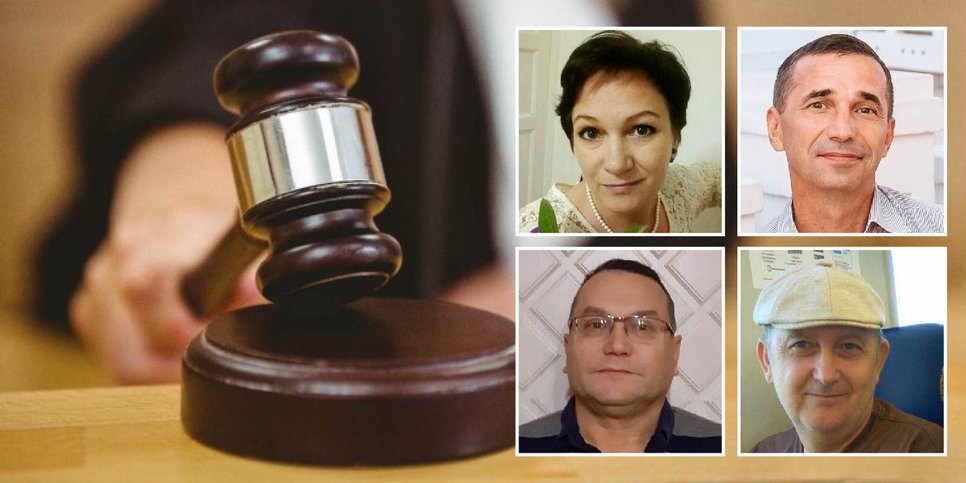A Sochi Court Convicts Four Jehovah's Witnesses, Including a Woman
Krasnodar TerritoryIt became known that on March 28, 2022 the judge of Khostinsky District Court of Sochi Konstantin Sidoruk found four of local Jehovah's Witnesses guilty of extremism. Two of them were sentenced to a penal colony, but they have already served their sentences in the pre-trial detention center. Another two were given suspended sentences by the court.
The court sentenced 49-year-old Tatyana Velizhanina to 1 year and 5 months in prison, 55-year-old Vladimir Deshko—to 1 year and 4 months, with a sentence to be served in a penal colony. The believers were not placed in custody as they have actually served their sentences—during the investigation and court hearings, Velizhanina and Deshko spent 11 and 10 months in the pre-trial detention center, respectively, after which they were placed under house arrest (one day spent in custody is equal to 1.5 days of imprisonment, and 2 days of house arrest—to one day in the penal colony).
The court sentenced 55-year-old Yuriy Loginskiy and 57-year-old Yuriy Moskalev to 2 years of suspended sentence without restriction of freedom with a probationary period of 2 years. Both believers have been released from house arrest.
The believers did not admit their guilt in extremism. The verdict has entered into force.
In the winter of 2021, the investigative department for the Khostinskiy district of Sochi of the Investigative Committee of the Investigative Committee of the Russian Federation opened a criminal case against four believers under Article 282.2 of the Criminal Code. They were arrested and imprisoned in the temporary detention center. Two days after the detention, Yuriy Loginskiy and Yuriy Moskalev were placed under house arrest, and Vladimir Deshko and Tatyana Velizhanina were placed in a pre-trial detention center. Subsequently, Vladimir and Tatyana were also placed under house arrest, they were deprived of the opportunity to provide for themselves and their families.
On February 21, 2022, after 11 months of investigation, the case was submitted to the Khostinskiy District Court of Sochi. The accusation was based on the testimony of a young man who feigned an interest in biblical teachings. During personal conversations, he collected information about believers and passed it on to the security forces.
As in other similar cases against Russian believers, over a month of court hearings, the court only proved that the defendants belonged to the religion of Jehovah's Witnesses. Sochi residents were tried for the fact that they "held on the territory of the city . . . meetings", and also "carried out preaching activities." Commenting on the situation, Yuriy Moskalev said: “When I was sitting in the cell, I understood that I was arrested not for some real crime, but for the Word of God, for the truth that I wanted to convey to another. But the mind did not accept this reality of the matter.
Yuriy Loginskiy during the persecution had to face "arrest, strong emotional stress from his mother, the death of his mother-in-law." The repressions were a particularly painful blow for the Deshkos, as their son, Yevgeniy, was also convicted for his faith. And Tatyana Velizhanina’s emotional shock was compounded by a deterioration in her health (she suffered COVID-19 behind bars).
In the Krasnodar Territory, 24 Jehovah's Witnesses have already become victims of repression for their faith. Four of them are in penal colonies, and two have served their sentences.
Despite numerous appeals by human rights activists and clarifications, the Plenum of the Supreme Court in Russia continues to groundlessly condemn believers for peaceful religious activity.




